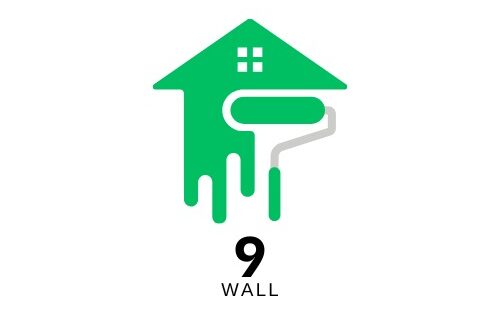Table of Contents
- What Are Bail Bonds?
- How Do Bail Bonds Work?
- Types Of Bail Bonds
- Who Can Use Bail Bonds?
- Benefits Of Bail Bonds
- Criteria For Setting Bail
- Alternatives To Bail Bonds
- Tips For Working With Bail Bondsmen
What Are Bail Bonds?
Bail bonds are a crucial component of the judicial system, particularly for individuals who find themselves on the wrong side of the law. These bonds essentially serve as a financial guarantee that the defendant will return for trial and related court appearances after being released from custody. When courts require a security measure to ensure that a defendant does not flee, bail bonds provide a practical solution that benefits both the judicial system and the individual involved. In areas like Erie County bail bonds play an indispensable role in maintaining a balance between ensuring public safety and upholding the legal rights of defendants. Bail bonds also enable defendants to maintain their daily routines while awaiting trial, which can be crucial for their personal and professional stability. The bond procedure can be complex, requiring the expertise of professionals who understand the legal intricacies of the system. Bail bonds allow defendants to obtain their freedom, thereby adhering to the principle of being innocent until a final verdict is reached.
How Do Bail Bonds Work?
When an individual is charged with a crime and subsequently arrested, a court hearing is held to determine whether bail is required for release until trial. Bail is a sum of money or bonds presented to the court, serving as a guarantee to ensure the defendant appears for court dates. However, not everyone can afford to pay the full bail amount, which can vary considerably based on the severity of the crime and other factors. In these instances, defendants may seek the assistance of a bail bondsman, an expert who, for a fee, will secure the necessary bail amount on the defendant’s behalf. The process is straightforward: The bail bondsman charges a non-refundable fee, commonly around 10% of the total bail set by the court, to post a bond promising the defendant’s appearance. Understanding this process is crucial, particularly when navigating the complex legal system. For a deeper explanation of how bail bonds work, you can check out this guide on WikiHow, which provides a detailed breakdown of the steps involved.
Types Of Bail Bonds
There are several types of bail bonds, each designed to cater to different legal and financial circumstances:
- Surety Bonds are the most frequently used type of bail bond. In this scenario, the bail bond company guarantees to the court that the defendant will abide by all court requirements.
- Cash Bonds: These bonds require the defendant to pay the entire bail amount in cash. While less common, they provide a straightforward way to secure release, refunding the money after successful court appearances.
- Property Bonds: Real estate or other valuable possessions are collateral rather than cash. This option benefits individuals with substantial property equity but who lack readily available funds.
Who Can Use Bail Bonds?
Bail bonds are generally available to anyone arrested and facing charges, offering a chance to obtain freedom rather than awaiting trial behind bars. Eligibility for bail bonds typically hinges on the nature of the charges, the defendant’s previous criminal history, and risk assessments that determine the likelihood of the defendant appearing in court proceedings. Despite the availability, bail is not granted universally and varies significantly by jurisdiction and circumstance.
Benefits Of Bail Bonds
Utilizing bail bonds offers numerous advantages beyond the primary benefit of release from custody. Defendants can continue their daily lives, including maintaining employment, fulfilling family obligations, and preparing for the upcoming trial, without being confined. Financially, using a bail bond can be less taxing on a family’s immediate resources than paying full bail—or worse, enduring the economic impacts of prolonged imprisonment. Furthermore, bail bonds support principles of fairness within the justice system, especially in discussions surrounding bail reform acts, which aim to ensure equitable treatment across diverse economic backgrounds. The accessibility to bail bonds thus promotes a balance between justice and compassion, preventing unnecessary hardships on defendants and their families.
Criteria For Setting Bail
Judges consider various essential elements when deciding on bail, including the seriousness of the alleged crime, the individual’s criminal history, and their connections to the community.
More severe crimes typically result in higher bail to account for potential flight risks or dangers to public safety. Conversely, individuals with strong community connections or a minimal criminal history may see reduced bail requirements. It’s an exercise in judicial discretion, calculated to maintain the delicate balance between personal liberty and communal security.
Alternatives To Bail Bonds
A spectrum of alternatives to traditional bail bonds exists, each contingent upon the specifics of the legal case. Release on own recognizance (ROR) serves as a primary alternative, where the court allows release without financial obligations, provided the defendant promises to attend all court hearings. Such decisions typically reflect the court’s confidence in the defendant’s reliability and low risk of absconding. Other solutions, such as supervised release, where the defendant may be overseen by a government agency or a third party, or electronic monitoring, which utilizes technology to track defendants, offer varying levels of freedom and assurance for the court.
Tips For Working With Bail Bondsmen
When looking for a bail bond agent, thorough research is essential. The credibility and trustworthiness of the bail bond agent can significantly influence the entire procedure and result. Here are some practical tips:
- Ensure you engage with a licensed and reputable bail bond agent. Reviews and referrals can offer valuable insights into the level of service and professionalism you can expect.
- Understand the terms involved in the bail bond agreement. Understanding obligations, fees, and procedures is crucial to avoiding potential complications or issues later.
- Feel free to inquire about the timeline, procedures, and what to anticipate throughout the bail process. Clear communication is key to maintaining assurance and collaboration.
By being informed and prepared, defendants and their families can confidently navigate the bail bond process, maintaining their dignity and protecting their rights within the judicial system.







